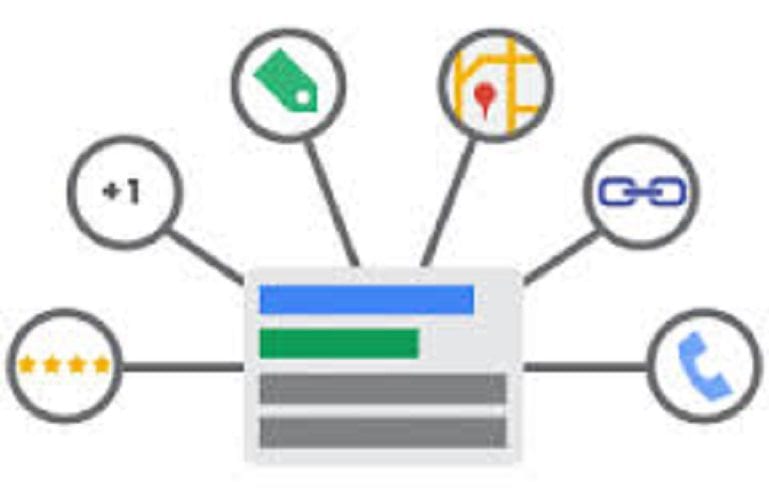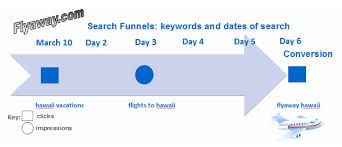Avoid those common PPC Mistakes to maximise your campaigns
As I work with new clients to improve their PPC campaigns, there are some common mistakes I see again and again. These include both the way the account is set up and the overall strategy of where to focus PPC spend. In this post I'll recommend a number of tools and techniques that can help you avoid these mistakes and so boost campaign ROI in AdWords.
1. Not analysing enough data
One simple mistake that marketers make is that they don't analyse enough data to come to a statistically reliable decision. When you first start out testing and you see that one ad has 15 clicks and one has 12 and come to the conclusion that the one with 15 is better. However here you would not have enough data to make a reliable decision and are at risk of choosing the wrong advert as your winner.
To ensure that you always have enough data when testing I would suggest using Splittester.com. It's a simple free tool that allows you to enter the number of clicks and CTR (Click-through rate) or conversion rate of the two ads your testing, then provides you with a confidence percentage with which you can choose a winner.
Here I suggest waiting until you have a confidence of at least 95% before choosing a winner to ensure you make the right decision.
2. Assuming search partners will be profitable
When you create a new search campaign it is set by default to 'all features' which means that your adverts will appear on both Google Search and Google Search Partners. The benefit of this is it gives you more exposure, however it is not always profitable and could be could be increasing your cost per conversion without you even knowing about it. Google make it hard to determine if your search partners are profitable as they do not aggregate the data for you to make a decision based upon.
The best way to see this data is to download a campaign report and then use a pivot table that has campaigns for rows and networks for columns to compare the cost per conversion of the two networks.
On several campaigns that we have analysed we noticed that on some occasions search partners can be considerably more costly than Google's Search Network.
3. Not using the full range of ads extensions
Ads extensions allow you to take up more advertising space increasing the chances of your adverts being clicked. Research by Google suggests that site link extensions increase CTR by 10-20%.
Revoo have also published research that shows that adding review extensions (merchant stars), you can increase your conversion rate by as much as 4.6%.
Make sure that you have take full advantage of all 6 of the ads extensions features available and sign up to a third party review customer review collector such as Trustpilot or Feefoo if you don't use Googles Merchant Centre so you can display review stars next to your adverts.

4. Not bidding on your branded keywords
In every account you should have a campaign dedicated to your brands keywords. If you don't already have one, I would highly recommend creating one There are two main advantage of bidding on your branded terms: The first being that it branded keywords are generally very cheap as you will have a high quality score and CTR and secondly they convert considerably better than non branded keywords. Research by Kunocreative of their propriety data showed that branded keywords convert nearly 3.5X as well as non branded keywords.
5. Not analysing search funnel data
In Google Adwords, conversions are attributed to the last advert that was clicked before the conversion, masking the fact that there are usually several clicks and searches before a user will finally converted. Take a look at example flow chart below. The user has searched 'Hawaii vacations' then 'flights to Hawaii' then finally 'flyaway Hawaii' before making a purchase.

Here the average marketer would have seen that the keyword 'Hawaii vacations' has several clicks attributed to it but no conversions and would pause it. However a smarter marketer would realise that this is a profitable keyword as it is part of the sales cycle and keep it.
So before you pause a keyword make sure you take a look at your search funnel reports.
6. Not tracking conversions effectively
Without being able to accurately measure conversions it is impossible to optimise your PPC campaigns for return on investment. Here are three ways to effectively track online leads and sales, e-commerce conversions and phone calls:
- 1. To effectively track online leads and sales you should use the standard Google Adwords conversion tracking pixels, which should be inserted into the thank you page of your website.
- 2. To track e-commerce conversions you should link your Adwords and Analytics accounts and should import your e-commerce conversions from Analytics into Adwords.
- 3. To track phone calls you should use call tracking from a 3rd party provider such as Calltracks or Infinity Tracking.
7. Not optimising your campaign settings
By optimising your campaign settings you can considerably increase your return on investment of your campaigns yet many marketers miss this opportunity. Because of the way that people search on different devices CPA's (cost per acquisition) vary widely.
To optimise your bidding to compensate for this you should navigate to the devices tab in campaign settings and use bid modifiers to increase the bids if the CPA is below goal or to lower the bids of the CPA is above goal.
The dimensions tab also gives you valuable data to optimise your campaign schedule. By looking at the report in time > day of the week you can see how different days perform and create bid modifiers in your schedule to reduce the bids on poor performance days and increase bids on high performance days. You can do the same with the hours of the day by looking at the time > hours of the day report.
8. Assuming the number 1 spot will be most profitable
Although the number one spot will get you the most traffic the chances are that it will not be the most profitable.
Positions 3-7 generally have a higher conversion rate because of the way people search, so instead of optimising your bidding for the number one position you should identify the most profitable position and optimise your bidding to appear there.
There are two ways to find your most profitable position. The first is to export your campaign data from Adwords and then create a pivot table to identify the most profitable position, or alternatively you can use keyword position report in Google Adwords which shows you how the conversion rate of a keyword varies at different positions.
9. Analysing search query reports at keyword level
The search query report is one of the most valuable reports in Adwords as it allows you to see what the searcher typed into Google before they clicked on your ads. Because of the way that people search the vast majority of your search queries will be unique making them difficult to see trends if you analyse each search query individually. However if you are smart and analyse them by theme you can quickly see trends.
For example if you saw that search queries containing the word 'cheap' performed very badly then you should improve the performance of your account by adding the word 'cheap' as a negative keyword.
If you had analysed these reports at keyword level this would have been very hard to spot, but by performing theme analysis you can draw powerful insight. You can also use this data to intelligently A/B test your ads and optimise bids for long tail keywords which you can read more about on the adwords site.
10. Not creating mobile friendly campaigns
A study by Marin software showed that 34.2% of searches now come from mobile devices so having a mobile optimised campaign is becoming more and more fundamental to success. In several recent account audits that I have performed I noticed that this is one of the poorest aspects of most people's campaigns due to the fact that they don't have effective mobile landing pages, which significantly reduces their conversion rate.
To make your campaigns mobile friendly you should ensure that you are using 'click to call extensions', ensure your mobile adverts lead to a responsive web pages and finally that you use mobile call to actions, such as 'call now' where appropriate.
Thank you for reading, if there are any other common mistakes which you think should be included or if you have any questions please post a comment below.

Wesley is a an expert paid search marketer with over 5 years experience. He regally contributes to the Clicteq blog and is available to manage your paid search campaigns. You can connect on LinkedIn.









